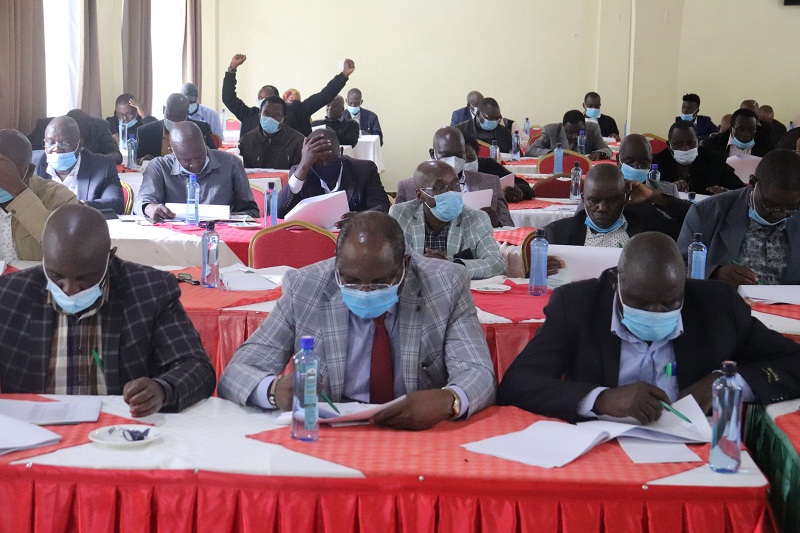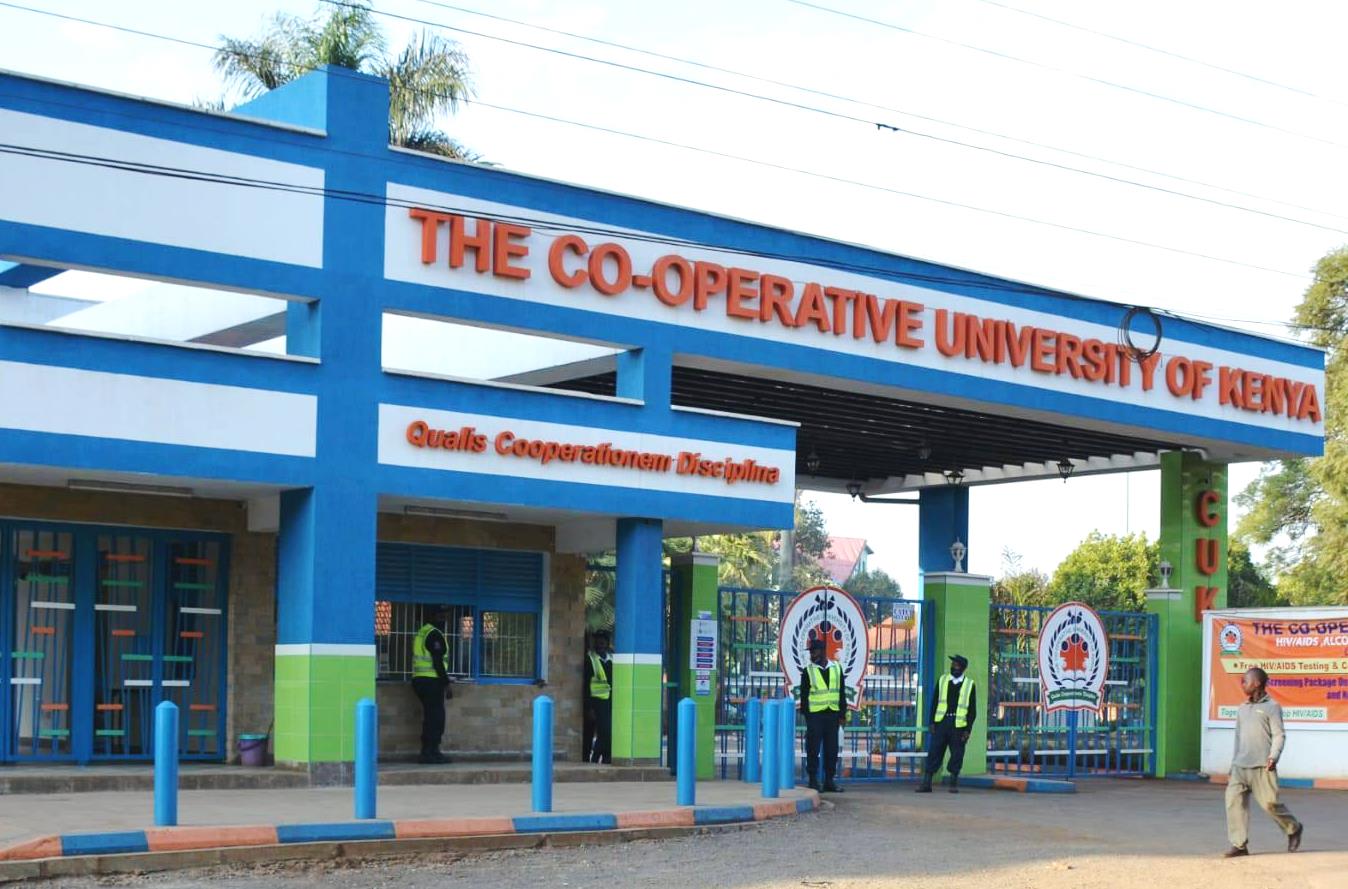By Kamundia Muriithi
Kenya Teachers Sacco Association (KETSA) has new board of directors elected into office during its Annual General Meeting (AGM) held in Embu County recently.
The newly elected directors led by the new chairman Mr Robert Njue Kithanju has promised to steer KETSA to greater heights so that it would continue advocating for the growth of teachers’ saccos and the improvement of the welfare of teachers in the country.
Kithanju is the current chairman of Winas Sacco, and he takes over from Mr John Muigai Njuguna. Njuguna who is the current chairman of Cosmopolitan Sacco relinquished the position after he was elected a director of KUSCCO.
He has been the Ketsa chairman for the last three years, during which time Kithanju was the secretary.
The other new officials are: Vice chairman Kennedy Keya (IG Sacco), Secretary Peter Ngugi (Tawa Sacco), and Treasurer David Rono (Noble Sacco).
During the AGM, KETSA officials and members raised concern that the review of the Value Added Tax (VAT) from 14 to 16 per cent as contained in the 2021/2022 financial year budget would adversely affect their performance.
They warned that the financial status of many teachers as well as the rest of Kenyans would be affected financially as the revised VAT will push the cost of goods and services, and many Kenyans would be unable to repay their loans
They noted that the rising taxation is worsened by the high cost of fuel, Covid-19 disruptions, and the two-year salary increments freeze for public workers as announced recently by the Salaries and Remuneration Commission.
Mr. Njuguna, the outgoing chairman, argued that since the government has stopped salary increments, it should not raise taxes, and should ensure the cost of petroleum products remain affordable to Kenyans.
“In the current economic situation, teachers and other ordinary Kenyans will continue to suffer and many will default on their loans repayments,” he said.

Ketsa members during the AGM at Mountain Breeze Hotel in Embu County. Photo Kamundia Muriithi
Mr Njuguna suggested that the government should expand its taxation base by netting businesses that avoid and evade paying taxes.
He pointed out that a salary increment for teachers strengthens the economy in that the tutors invest in various parts of the country, promoting the flow of money and growth of those regions.
Mr Kithanju, on his part, called for the disbursement of teacher’s salaries early so that the Saccos are able to make their deductions in time for their operations to continue unaffected.
He cited the case of county government workers who due to delays of their salaries are unable to repay their loans and pay for their shares.
“The last time we got remittances from county government employees was in January. We are now unable even to advance loans to them. If they are paid early, this can have a multiplier effect in the economy,” he said.
KETSA was registered in 2012 to provide a collaborative forum for sharing and learning from one another, as well as addressing operating challenges of the primary member Saccos.
The association also provides common investment opportunities geared towards improving their general welfare.
According to Mr Njuguna, during his time at the helm, KETSA played a significant role in uplifting the situation of its members.
To cushion members from financial turmoil due to the Covid-19 pandemic, Njuguna revealed that the association advocated for restricting of loans through longer repayment periods to offer some sort of relief.
The Saccos, smarting from the pandemic effects, also adjusted their dividends payouts.
KETSA whose income is mainly from the training of teachers suffered a blow due to Covid-19 when the government banned such trainings. The profit in 2019 was Sh33 million, but fell to Sh18 million in 2020.
“This year we hope the situation will improve through resumption of training and the recruitment of more teachers. We project our profit to rise to above Sh30 million,” said Mr Njuguna.





